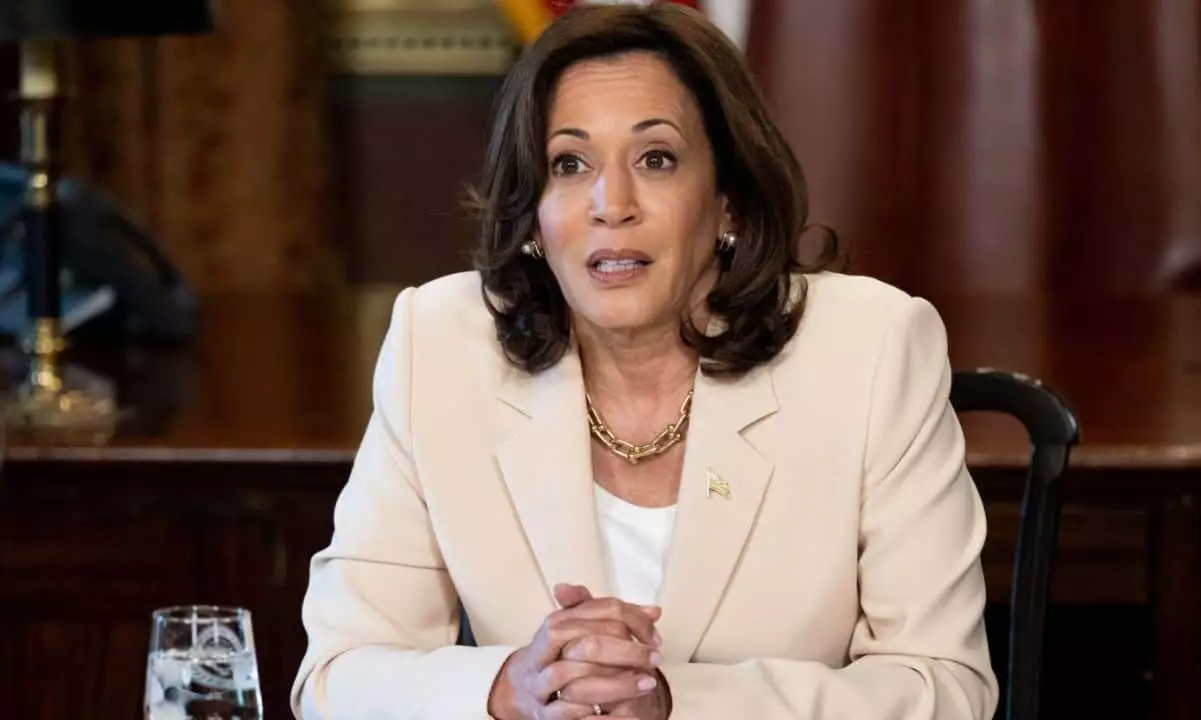The intersection of politics and cryptocurrency is becoming increasingly significant as the upcoming presidential elections loom large in the United States. In this context, Vice President Kamala Harris has made headlines by pledging her support for digital asset policies, particularly focusing on the empowerment of black men within the crypto space. However, this promise raises several questions regarding its feasibility, specificity, and sincerity.
In a recent announcement, the Harris campaign indicated its intent to foster a regulatory environment that protects investors in the cryptocurrency market, with a particular emphasis on black men. The campaign’s reasoning stems from the statistic that 20% of black individuals in the U.S. own or have owned cryptocurrency assets. This acknowledgment is crucial, as it highlights the growing interest and participation of communities of color in an arena that has historically been dominated by affluent white males.
The commitment to creating a protective framework resonates with many who have faced systemic barriers in accessing financial resources. However, the lack of concrete details about what this framework may entail raises doubts about the sincerity of this pledge. Harris’s speech at an event in Erie, Pennsylvania did not provide clarity, missing critical terminology associated with the crypto world, such as “blockchain” or “digital assets.” This omission could suggest a lack of depth in her understanding of the subject matter, thus undermining the credibility of her commitment.
The political landscape for cryptocurrency is not solely defined by the Democratic party’s stance. Former President Donald Trump has also been vocal about his newfound support for digital assets, proclaiming himself the “Crypto President.” Observers have noted that Trump’s approach includes specific promises, such as establishing more favorable regulations and forming a Bitcoin advisory council. This directness in policy articulation contrasts sharply with the vagueness of the Harris campaign’s current offerings.
One prominent critic, Nikolaus Hoffman of Bitcoin Magazine, has characterized Harris as “the worst candidate for Bitcoin.” This critical view stems not only from her vague declarations but also from an entrenched perception among cryptocurrency advocates that the current administration is not prioritizing their concerns. In a world where transparency and commitment to a specific agenda are paramount, it is easy to see how Harris’s lack of detail could alienate potential supporters in the crypto community.
Acknowledging this contrast, a spokesperson for Harris aimed to discredit Trump’s credibility by highlighting his alleged contempt for black Americans. Nonetheless, Trump’s recent actions, including purchasing food with cryptocurrency in a New York bar, illustrate a tangible connection to the crypto community that the Harris campaign has yet to establish.
Compounding Harris’s challenge is the bittersweet legacy of the Biden administration concerning cryptocurrencies. Gary Gensler, the current head of the Securities and Exchange Commission (SEC), has gained notoriety in crypto circles for what many view as overzealous regulation. This regulatory propensity has fostered a climate of apprehension among investors and advocates, making it difficult for Harris to distance herself from an anti-crypto narrative tied to her administration.
The dynamic interplay between political promises and regulatory frameworks creates a complex landscape for cryptocurrency advocates. The Biden administration’s broader economic policies have sparked criticism for lacking innovation in dealing with new financial technologies. Harris’s effort to engage with underrepresented communities within this sphere could be viewed as a populist strategy that seeks to align with a growing demographic of crypto investors. Still, without concrete regulatory proposals, this initiative risks being perceived as mere lip service.
As the election draws closer, it’s imperative that the vice president provides more substantial commitments regarding cryptocurrency. The stakes are undeniably high; the growing engagement of minorities in this realm has the potential to reshape finance as we know it. Both Harris and her challengers must navigate this developing landscape with precision, as their relationships with the crypto community can significantly influence their political prospects.
While Kamala Harris’s pledge to protect crypto investors is a step in the right direction, it remains to be seen if her administration can effectively address the complex issues underpinning cryptocurrency regulation. The political dialogue surrounding these assets must evolve from vague promises to actionable plans if it is to gain the trust of a wary public and a disenchanted crypto community.


Leave a Reply